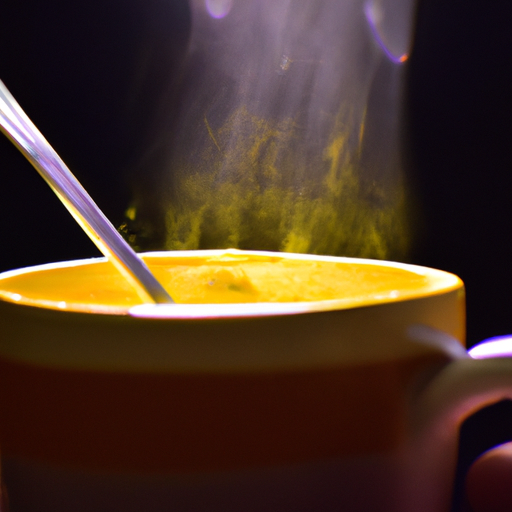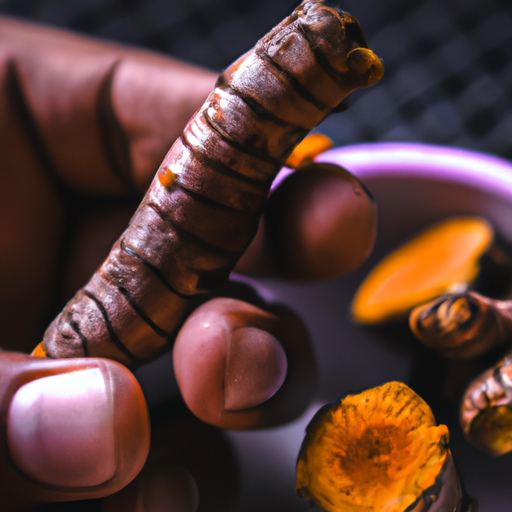When it comes to following a low FODMAP diet, I know that finding suitable beverages can be a challenge. As they say, ‘Don’t throw the baby out with the bathwater!’ In this case, don’t dismiss herbal teas just yet. They can be a refreshing and comforting addition to your low FODMAP journey.
In this article, we will explore the world of herbal teas and their compatibility with a low FODMAP diet. We will dive into understanding the principles of the diet and identify FODMAP-friendly herbal teas that you can enjoy without worrying about triggering digestive symptoms. I will also provide you with tips on choosing and brewing the perfect cup of herbal tea.
So, if you’re wondering whether herbal teas are a suitable choice for your low FODMAP diet, keep reading. You might just discover some delightful and beneficial options that will make your tea time even more enjoyable.
Key Takeaways
- Herbal teas can be a refreshing and comforting addition to a low FODMAP diet.
- FODMAP-friendly herbal teas include peppermint, chamomile, ginger, and lemon balm.
- It’s important to read labels carefully to ensure herbal teas do not contain high FODMAP ingredients.
- Herbal teas offer potential benefits such as soothing an upset stomach, reducing inflammation, and promoting relaxation.
Understanding the Low FODMAP Diet
So, you’re wondering if you can enjoy a cup of herbal tea while following the low FODMAP diet? The low FODMAP diet is a dietary approach that aims to reduce the intake of certain carbohydrates that can cause digestive symptoms in individuals with irritable bowel syndrome (IBS). These carbohydrates, known as FODMAPs, include fermentable sugars and fibers found in many foods.
The importance of following a low FODMAP diet lies in its ability to alleviate symptoms such as bloating, abdominal pain, and diarrhea. However, it’s essential to be aware of the low FODMAP diet restrictions when it comes to herbal teas. While some herbal teas are FODMAP-friendly, others may contain high FODMAP ingredients like honey, chamomile, or fruit infusions.
Exploring FODMAP-friendly herbal teas can be a great way to enjoy a soothing cup without compromising your diet.
Exploring FODMAP-Friendly Herbal Teas
Exploring FODMAP-friendly herbal infusions can transport you to a world of soothing, flavorful alternatives. When following a low FODMAP diet, it’s important to find herbal teas that are safe to consume. Luckily, there are plenty of options available.
Some popular low FODMAP herbal teas include peppermint, chamomile, ginger, and lemon balm. These teas not only provide a pleasant taste, but they also offer various health benefits. Peppermint tea can help with digestion, chamomile tea promotes relaxation, ginger tea aids in reducing nausea, and lemon balm tea has a calming effect.
It’s important to read the labels carefully to ensure that the herbal tea you choose does not contain any high FODMAP ingredients. Experimenting with different flavors can help you find the ones that suit your taste buds best.
Transitioning into the next section, let’s now explore some tips for choosing and brewing herbal teas.
Tips for Choosing and Brewing Herbal Teas
When choosing herbal teas, it’s important to check the ingredients to ensure they’re low FODMAP. I also recommend using fresh or dried herbs instead of pre-packaged tea bags, as they may contain high FODMAP ingredients. Additionally, steeping the tea for the right amount of time is crucial to extract the desired flavors and benefits from the herbs.
Check the Ingredients
To determine if you can drink herbal tea on a low FODMAP diet, check the ingredients list for any potential high FODMAP ingredients. Did you know that some herbal teas contain ingredients such as chamomile or peppermint, which’re known to have a soothing effect on the digestive system?
When checking labels, look for ingredients like fructose, lactose, fructans, and polyols, as these’re common high FODMAP substances. Avoid teas that contain these ingredients, as they can potentially trigger symptoms in individuals with a sensitive digestive system.
It’s important to note that everyone’s tolerance to FODMAPs is different, so what works for one person may not work for another. If you’re unsure, consult with a registered dietitian who specializes in the low FODMAP diet.
Now, let’s move on to the next section and discuss the importance of using fresh or dried herbs.
Use Fresh or Dried Herbs
Enhance the flavor of your beverages by incorporating the vibrant and aromatic essence of fresh or dried herbs. When it comes to herbal tea on a low FODMAP diet, both fresh and dried herbs can be used to add depth and complexity to your brew.
Fresh herbs, such as mint or chamomile, offer a burst of flavor and can be easily grown at home. On the other hand, dried herbs, like lavender or rosemary, have a more concentrated taste and can be stored for longer periods of time.
Additionally, both fresh and dried herbs have their own unique health benefits, ranging from soothing digestion to reducing inflammation. Experiment with different combinations to find your favorite flavor profiles, and don’t be afraid to try new brewing techniques.
Steep for the right amount of time to extract the maximum flavor and enjoy a soothing cup of herbal tea.
Steep for the Right Amount of Time
Get lost in the rich aroma and deep flavors of your favorite infusion by allowing it to steep for just the right amount of time, immersing yourself in the soothing experience of savoring every sip. Brewing techniques and infusion time are crucial factors in achieving the perfect cup of herbal tea. To ensure optimal flavor extraction, different herbs require varying steeping times. For example, delicate herbs like chamomile and mint should be steeped for 5-7 minutes, while stronger herbs like ginger and rosemary may require 10-15 minutes. To help you navigate the world of herbal tea, here is a handy table outlining the recommended infusion times for popular herbs:
| Herb | Infusion Time |
|---|---|
| Chamomile | 5-7 minutes |
| Peppermint | 5-7 minutes |
| Ginger | 10-15 minutes |
| Lemon Balm | 5-7 minutes |
| Lavender | 5-7 minutes |
By following these brewing techniques and steeping your herbal tea for the appropriate amount of time, you can enhance its flavor and maximize its therapeutic benefits. Now, let’s explore how to incorporate these flavorful herbal teas into your low FODMAP diet.
Incorporating Herbal Teas into Your Low FODMAP Diet
If you’re on a low FODMAP diet, you can totally enjoy a cup of herbal tea without any worries! Incorporating herbal teas into your diet can have numerous health benefits.
Herbal teas are often made from plants like chamomile, peppermint, ginger, and fennel, which are all low in FODMAPs. These teas can help soothe digestive issues like bloating, gas, and indigestion, which are common symptoms for people on a low FODMAP diet. The natural compounds found in herbal teas have been shown to have anti-inflammatory and antioxidant properties, which can further support gut health.
Additionally, herbal teas are a great way to stay hydrated throughout the day. So go ahead and enjoy a cup of herbal tea as part of your low FODMAP diet and experience the potential benefits it can offer for your digestive health.
Potential Benefits of Herbal Teas on a Low FODMAP Diet
Improve your digestive health while following a low FODMAP diet by incorporating herbal teas, which can potentially soothe bloating and indigestion, as well as provide anti-inflammatory and antioxidant benefits.
Herbal teas have been used for centuries to support overall wellness, and they can be a great addition to your low FODMAP journey. When it comes to potential health benefits, herbal teas can help with symptoms such as gas, abdominal pain, and diarrhea, which are common in individuals with digestive sensitivities.
Additionally, some herbal teas, like chamomile and peppermint, have calming properties that can promote relaxation and reduce stress.
When choosing herbal tea brands, look for those that are certified low FODMAP to ensure they are safe for your diet.
Now, let’s explore some delicious herbal tea recipes that are suitable for a low FODMAP diet.
Herbal Tea Recipes for a Low FODMAP Diet
Let’s dive into some tasty recipes that’ll satisfy your cravings while supporting your digestive health on a low FODMAP journey! When it comes to low FODMAP herbal tea options, there are plenty of alternatives you can enjoy.
Here are three delicious recipes to try:
-
Minty Ginger Tea: Brew a cup of peppermint tea and add a slice of fresh ginger for a soothing and refreshing blend.
-
Chamomile Lavender Tea: Combine chamomile flowers and dried lavender buds for a calming and aromatic tea that promotes relaxation.
-
Lemon Verbena Tea: Steep lemon verbena leaves in hot water for a zesty and citrusy tea that aids digestion.
These herbal tea recipes provide a flavorful and gut-friendly alternative to high FODMAP beverages. So, why not indulge in some delicious herbal teas while following a low FODMAP diet? They’re a great way to support your digestive health and enjoy a comforting beverage.
Now, let’s move on to the conclusion: enjoying herbal teas on a low FODMAP diet.
Conclusion: Enjoying Herbal Teas on a Low FODMAP Diet
In conclusion, incorporating these flavorful and gut-friendly alternatives into your daily routine can be a delightful way to support your digestive health while following a low FODMAP eating plan. Herbal teas offer a wide range of potential benefits, such as soothing an upset stomach, reducing inflammation, and promoting relaxation.
There are several herbal tea recipes that are low in FODMAPs and can be enjoyed without worrying about triggering digestive symptoms. Peppermint tea is a popular choice, known for its ability to ease bloating and indigestion. Chamomile tea is another great option, as it can help calm the digestive system and promote better sleep. Ginger tea, made with fresh ginger root, can provide relief from nausea and aid in digestion. Lastly, fennel tea has been shown to reduce gas and bloating.
By incorporating these herbal teas into your low FODMAP diet, you can enjoy their potential benefits while keeping your digestive system happy and healthy.
Frequently Asked Questions
Can I drink any type of herbal tea on a low FODMAP diet, or are there specific ones I should avoid?
There are several herbal teas with potential benefits on a low FODMAP diet. Recommended herbal teas include peppermint, ginger, chamomile, and green tea. These teas can help with digestion, bloating, and relaxation.
Are there any potential side effects of drinking herbal teas on a low FODMAP diet?
Potential risks and long-term effects of drinking herbal teas on a low FODMAP diet are minimal. However, it’s important to note that individual reactions may vary. Consult with a healthcare professional for personalized advice.
Can herbal teas help with digestive issues commonly associated with a low FODMAP diet, such as bloating or gas?
Like a soothing breeze on a troubled sea, herbal teas can effectively reduce bloating and gas symptoms on a low FODMAP diet. Different types of herbal teas have varying effectiveness in alleviating digestive issues.
How many cups of herbal tea can I drink per day on a low FODMAP diet?
The maximum recommended intake of herbal tea on a low FODMAP diet varies, but it is generally advised to limit consumption to 2-3 cups per day. Drinking herbal tea may have potential benefits for digestion and reducing bloating or gas.
Can I add sweeteners or milk to my herbal tea while following a low FODMAP diet?
Yes, you can add sweeteners like stevia or maple syrup, and lactose-free milk to your herbal tea while following a low FODMAP diet. These options are low in FODMAPs and should not trigger symptoms.
Conclusion
So, in conclusion, incorporating herbal teas into your low FODMAP diet can be a delicious and beneficial choice. Not only can these teas provide a soothing and comforting experience, but they can also help alleviate digestive symptoms associated with the diet.
Whether you choose chamomile, peppermint, or ginger tea, there are plenty of FODMAP-friendly options to explore. Remember to choose teas that are free from high FODMAP ingredients and to brew them properly for maximum flavor and benefits.
So why not sit back, relax, and enjoy a cup of herbal tea while nourishing your body and supporting your digestive health? Cheers to a happy gut!










